The benefits of shea butter for your skin
Shea tree and nuts
Shea butter is a natural fat that is extracted from the shea tree's ripe nut. It is solid at warm temperatures and has an off-white or ivory colour. Shea trees are native to West Africa and most shea butter still comes from that region.
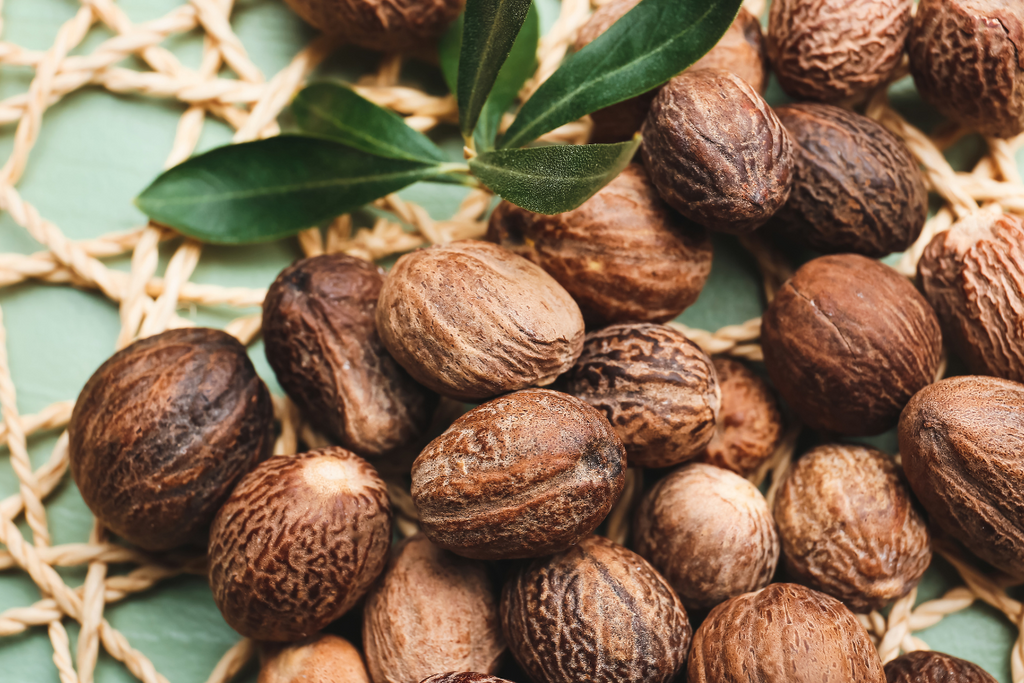
Pure shea butter has antibacterial properties and is often used to treat inflammatory skin conditions such as acne prone skin.
Shea butter in skincare
Shea butter has been used as a cosmetic ingredient for centuries. Its high concentration of vitamins and fatty acids - combined with its easy-to-spread consistency - make it a great product for smoothing, soothing and conditioning your skin.
The benefits of shea nuts and shea fat include moisturization, reduction of inflammation and skin irritation, protection from UV rays, improved collagen production, anti-ageing benefits and fighting acne.
It can be used both on its own or as an ingredient in skincare products to achieve maximum benefits. Using shea butter on the skin can help to lock in moisture and improve elasticity, leaving your skin looking more youthful.
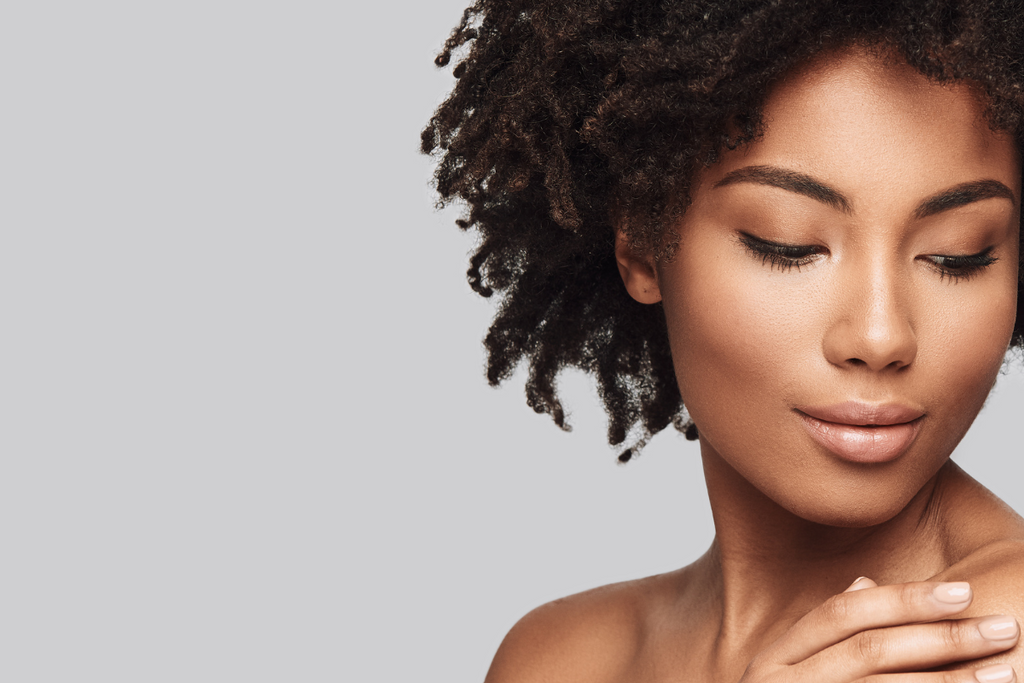
Shea butter has been used for centuries as a traditional African remedies to soften scar tissue, to treat sensitive skin and skin conditioning agent.
Benefits of using shea butter
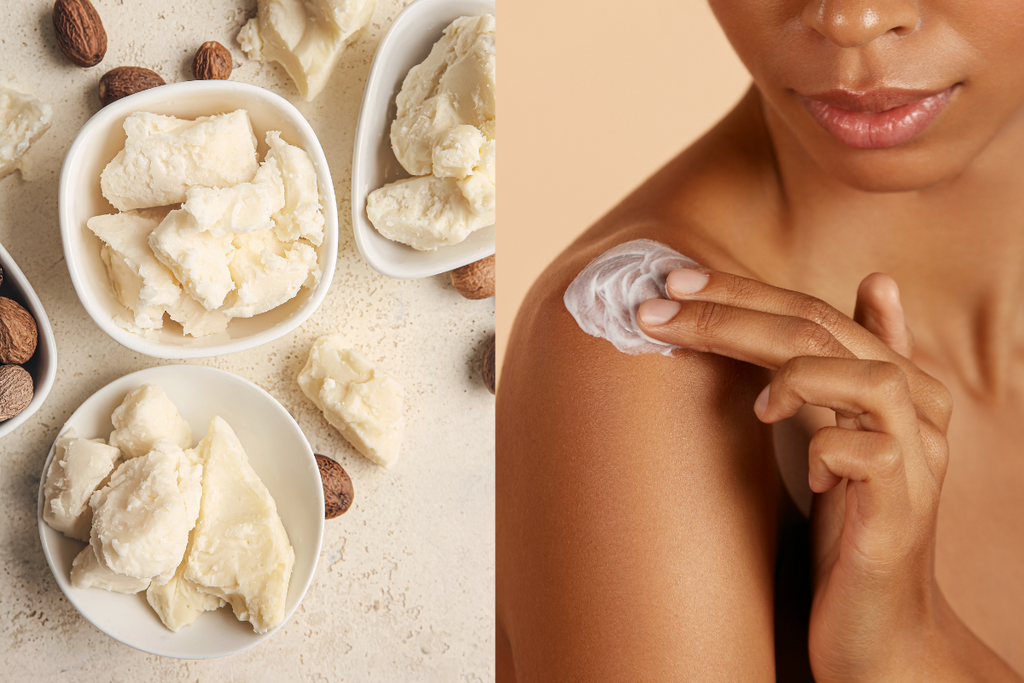
Shea butter soothes rough skin thanks to moisturizing properties of the linoleic acid that provides you with hydrated plump looking skin.
Shea butter is a natural moisturizer that helps to keep your skin hydrated
Shea butter has strong moisturising properties that can help to keep your skin hydrated and reduce dryness. Its high concentration of vitamins and fatty acids work together to ensure that your skin receives the necessary moisture it needs to stay healthy and nourished.
Reduction of inflammation and skin irritations
Shea butter can be used as a natural remedy for many common skin irritations, such as eczema, dermatitis and psoriasis. It has anti-inflammatory properties which can help to soothe inflammation and irritation caused by these conditions.
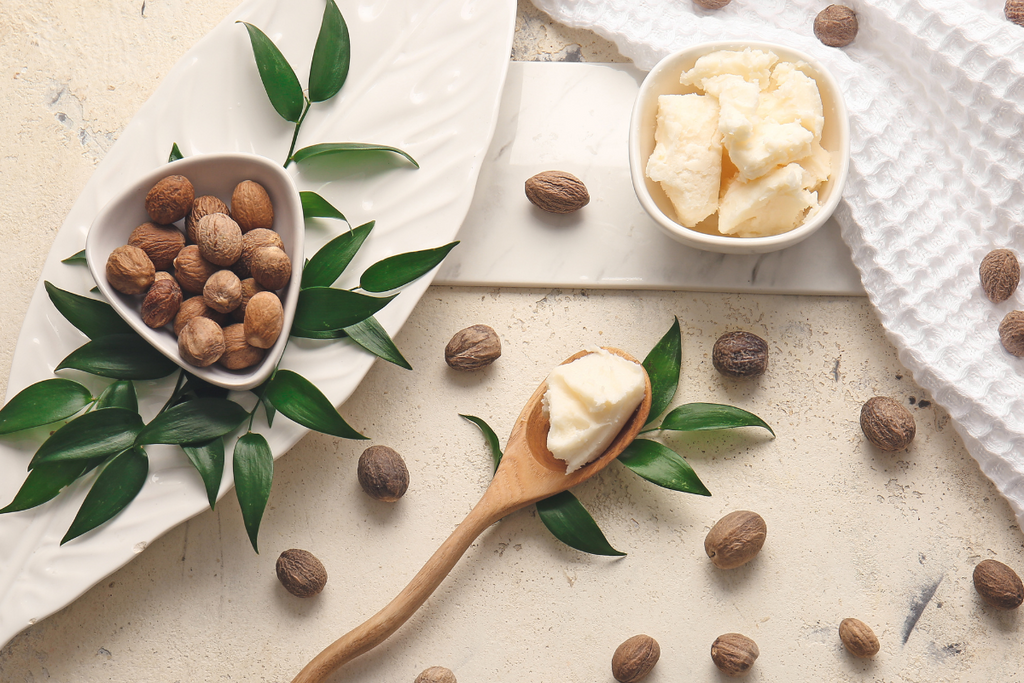
Shea butter works really well in cosmetic anti aging applications, provides skin barrier repair effects and hydrates skin.
Protects from UV rays
Shea butter provides natural protection from the sun's harmful UV rays. The antioxidants in shea butter are able to absorb some of the UV radiation from the sun, helping to protect the skin from sun damage and premature ageing.
Improves collagen production
Collagen is an essential component of healthy skin. Shea butter can help to stimulate collagen production in the skin, leading to firmer, smoother and more elastic skin.
Has anti-ageing benefits
The antioxidants in shea butter have anti-ageing effects on the skin. They help to reduce wrinkles, fine lines and age spots, giving your skin a more youthful appearance. Additionally, its moisturising properties can help to improve the texture and elasticity of the skin.
Fighting acne
Shea butter has natural antibacterial and anti-inflammatory properties which can help to reduce acne breakouts. Its moisturising properties can also help to keep the skin hydrated, preventing the development of excess oil which can lead to breakouts.
Stretch marks and scars remedy
Shea butter can help to reduce the appearance of stretch marks and scars. Its moisturising properties can help to make the skin more supple and elastic, which in turn can reduce the appearance of stretch marks and scars. Additionally, its anti-inflammatory properties can help to soothe redness and irritation associated with scarring.
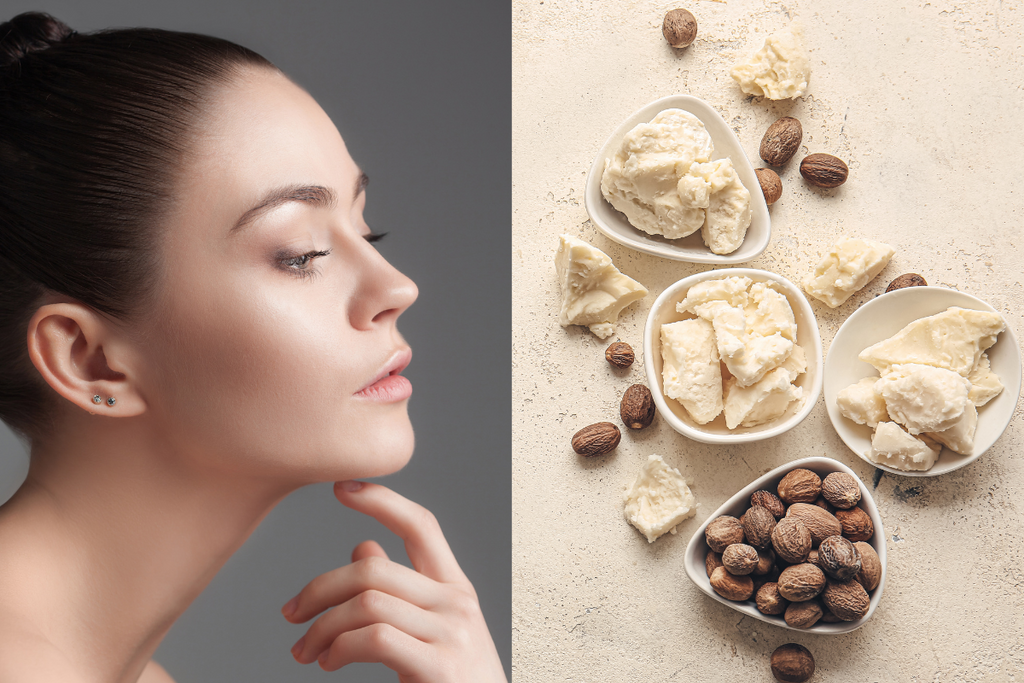
Shea butter possesses anti inflammatory effects and is often used in production of antiseptic soap together with the neem oil.
What skin types?
Shea butter can be used on both dry and oily skin types and can be found in many beauty products such as creams, lotions and ointments.
It is an excellent natural moisturizer that can help to keep the skin hydrated, nourished and protected from harmful environmental factors such as free radicals and UV rays. Its anti-inflammatory properties can also help to reduce redness and irritation of the skin.
Raw shea butter is especially beneficial for facial care due to its deeply hydrating properties, which help to maintain healthy, soft and supple skin.
If you have oily skin you should not use shea butter in its raw form as it can clog pores and cause acne. You can, however, take advantage of light face creams that contain shea butter or shea butter oil as an ingredient and still benefit from its incredible benefits.
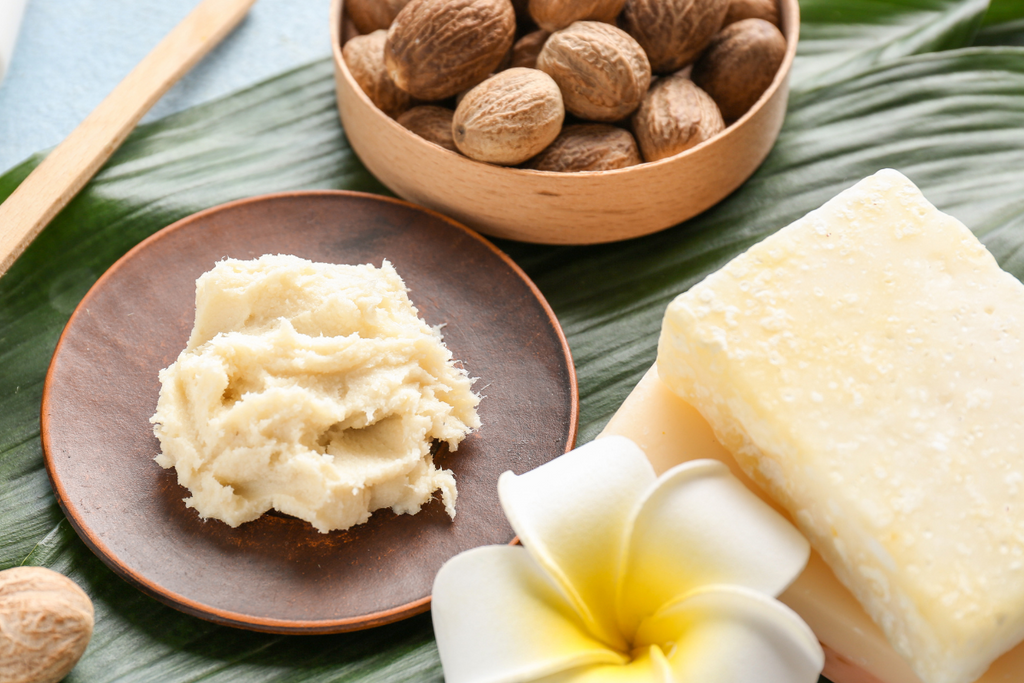
Shea butter is used in treating eczema as a main ingredient in the oil based ointment, thanks to shea butter's benefits it's often used in medicated creams and OTC eczema therapy.
Shea butter is rich in antioxidants
Antioxidants help to protect your skin from damage caused by the sun and pollution. It also has anti-inflammatory properties, which can help to reduce skin irritation and inflammation.
Combined with its moisturising benefits and ability to stimulate collagen production, shea butter is an ideal ingredient for any skincare routine.
Whether you choose to use it on its own or as an ingredient in at-home facial masks, shea butter can help to keep your skin healthy and glowing.
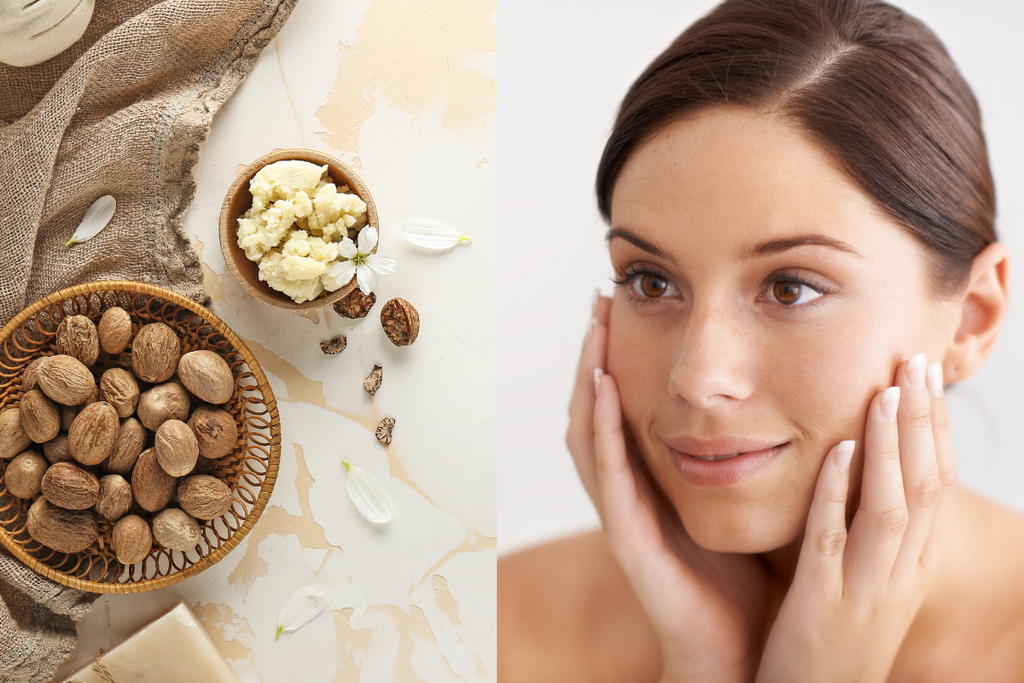
Shea nut, its a seed of the shea butter tree, its full of vitamin and minerals and it's gentle and soothing to sensitive and irritated skin.
Shea butter is a natural source of vitamins A, E, and F
All of these are considered youthful skin vitamin essential for healthy skin. Vitamin A helps to regulate cell turnover, Vitamin E provides antioxidant protection and Vitamin F protects the skin’s barrier. Shea butter is also rich in essential fatty acids which help to keep skin hydrated and nourished.
Unrefined shea butter vs refined shea butter
Natural shea butter is pure and unrefined, making it ideal for those with sensitive skin. It contains a higher concentration of natural vitamins, minerals and fatty acids which can provide more nourishment to the skin.
Refined shea butter is processed, so it may be more aesthetically pleasing in texture and appearance, but it also loses some of its beneficial properties.
When choosing between raw or refined shea butter, look at the product label — if there are additional ingredients listed (such as preservatives) then you should opt for the raw version.
Raw shea butter will provide your skin with richer nutrients and give the best overall benefits for all skin types.
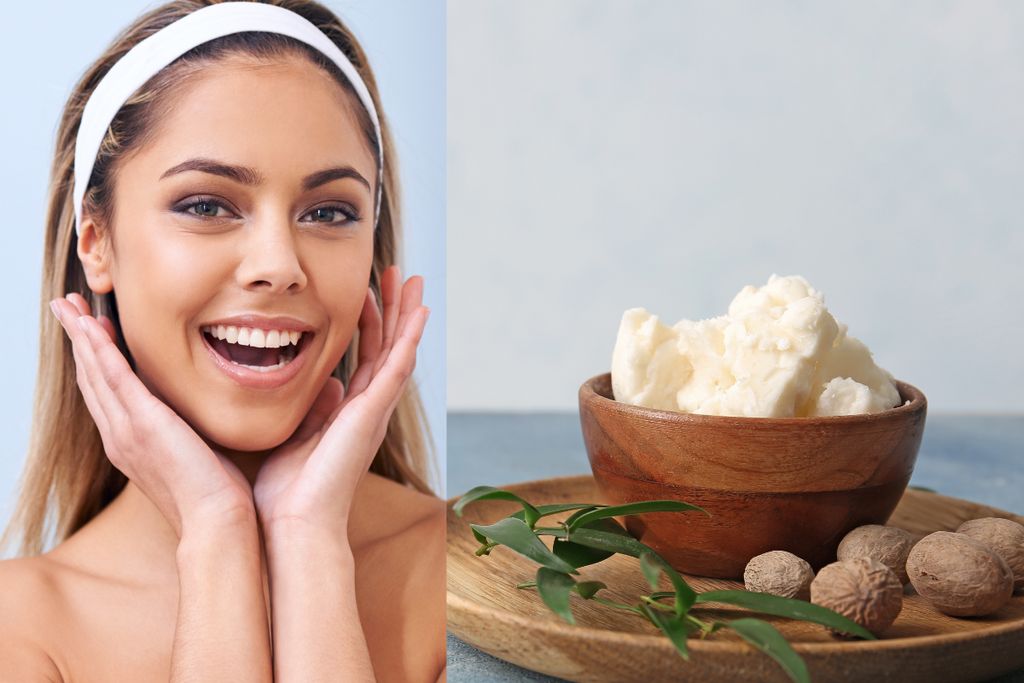
Shea nut, its a seed of the shea butter tree, its full of vitamin and minerals and it's gentle and soothing to sensitive and irritated skin.
Organic shea butter vs wild-harvested shea butter
Organic shea butter is produced using methods that are in line with organic farming practices, while wild-harvested shea butter is sourced directly from the shea tree. Wild-harvested shea butter has no additives and retains all its natural properties, making it a great choice for those looking for pure, unprocessed skincare products.
No matter which type of shea butter you choose, applying it regularly to your skin can help keep your skin feeling smooth and nourished. With its moisturising benefits and antioxidant protection, shea butter can provide a range of skin
Shea butter extract versus shea butter
Shea butter and its extract offer a variety of benefits for the skin. With its natural vitamins, minerals, and fatty acids, shea butter can help to nourish and protect your skin while also providing antioxidant protection.
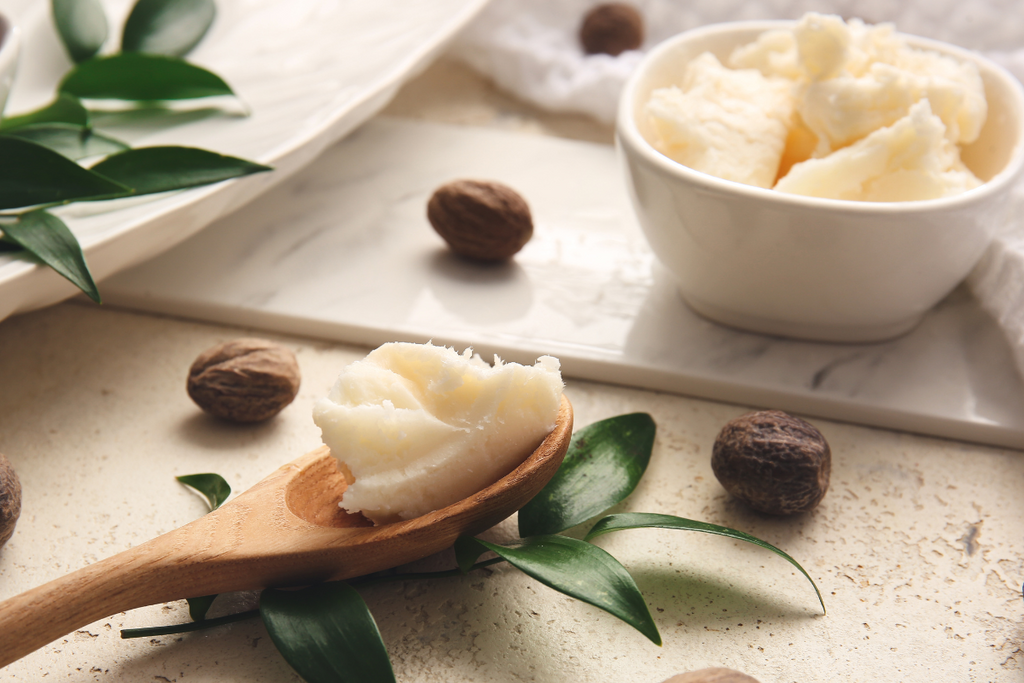
Shea butter eases inflammation, softens dry skin and has collagen boosting properties.
Directions for Use:
Shea butter can be used both on its own and as part of a skincare routine. To use shea butter on the skin, simply take a small amount onto your fingertips and massage it into the desired area until fully absorbed.
You can also mix shea butter with other ingredients such as essential oils or carrier plant oils to create an at-home body butter or facial mask that offers additional hydration and nourishment.
Important Note:
Stay aware of allergic reactions to shea butter. Be sure to do a patch test before using shea butter on your face as it can cause irritation for some people. If you experience any redness, itching or swelling after using shea butter, discontinue use immediately and consult your doctor. Some people experience topical shea butter allergies and you should be very careful especially if you have known tree nut allergies.
In conclusion, shea butter is an excellent ingredient for skin care thanks to its high concentration of vitamins and fatty acids which work together to provide intense hydration for the skin.
Shea butter also offers protection from UV rays, improved collagen production, anti-ageing benefits and helps fight acne. To experience the maximum benefits of shea butter, it is best to apply it once or twice daily onto clean skin.
However, be sure to do a patch test before applying shea butter on your face as it may cause irritation. With regular use of shea butter, you can enjoy healthy, glowing and nourished skin.
Shea Butter in Potion Organic Products
Hand & Body Butter is a luxurious, creamy butter that is made with mango and shea butter, apricot kernel oil, glycerine and hyaluronic acid to hydrate and protects your skin.
Non-greasy and quick-absorbing, this butter is ideal for everyday use. Give your skin the nourishment it needs with our Hand & Body Butter!
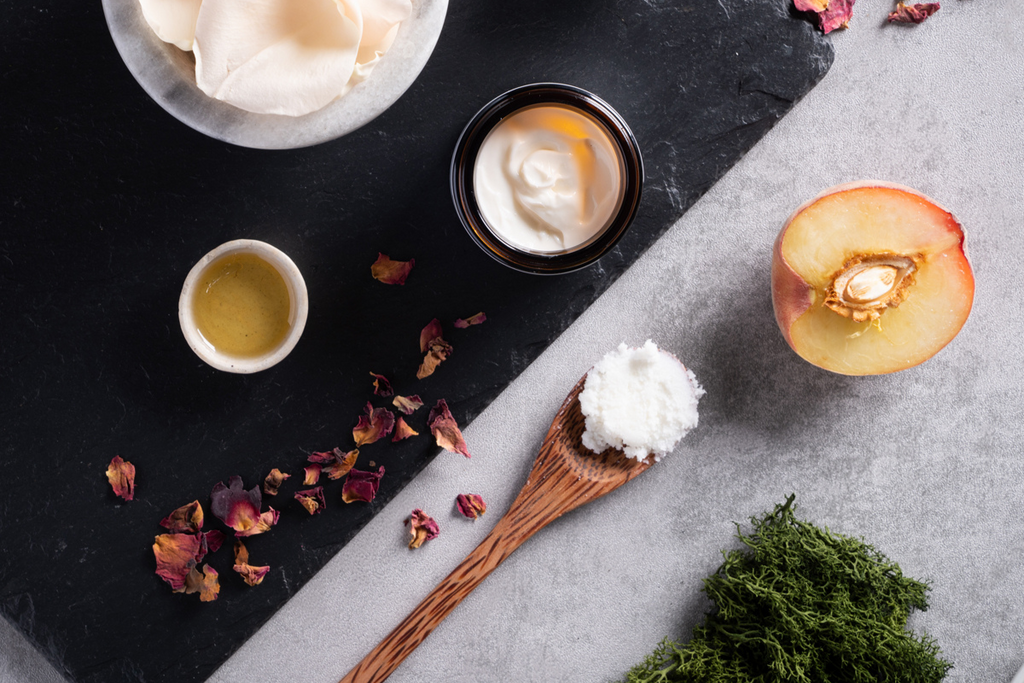
Introducing Perfect Moment Organic Body Balm, your ultimate skin-saving companion. Crafted with a luxurious blend of essential oils including lavender, patchouli, and may chang, our balm offers not only nourishment but also the therapeutic benefits of aromatherapy. Infused with unrefined shea butter, it ensures lasting hydration by effectively sealing in moisture.
Pick shea butter along with lipid complex and add into your daily routine as the skin shea butter works beautifully by nourishing skin and relief from dryness.
You can apply shea butter to any skin type, but is especially beneficial for dry skin and sensitive skin.
Find natural shea butter in many online shops, however the best in class is the unrefined shea butter from organic shea nuts, it's much richer in linoleic acid, absorbs into the skin swiftly and it's beneficial for atopic dermatitis.
